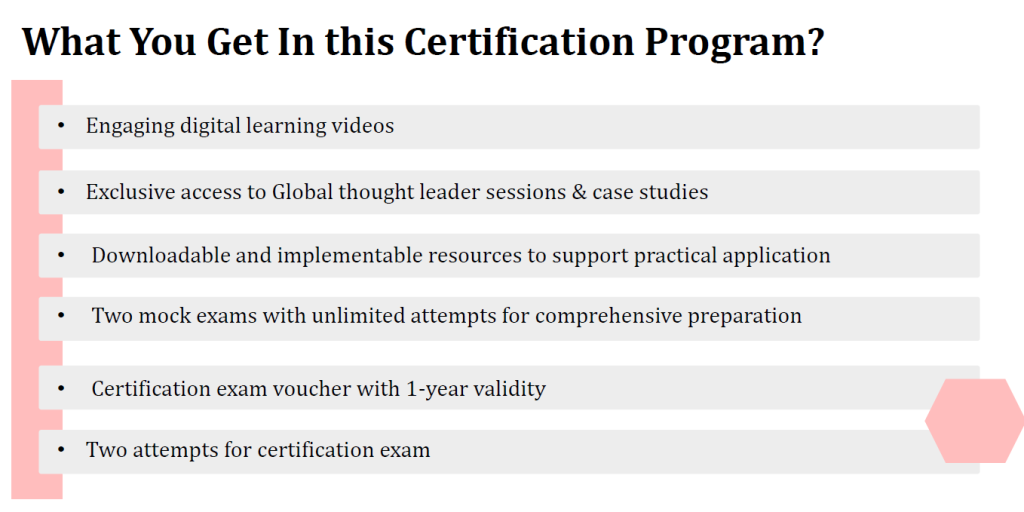Description
Global Certification Program
- E-Learning
- Globally lifetime Valid Certification
- Lifetime Valid Certification
- AI based Roleplay & Simulations
- Two Exam Attempts
Certified Software Development Life Cycle (SDLC) Professional
Software Development Life Cycle Certification is the systematic approach of Software development. It’s a testimony to the individual’s expertise and proficiency in the SDLC. This certification will help you validate the knowledge you need to make your professional career in SDLC. You can significantly choose between different methods, tools, and artifacts; the goal of our certification is to authenticate the knowledge and skills to reduce project risks through planning so that software meets expectations.
This certification will cover different SDLC models along with their processes. With this, individuals can showcase their detailed knowledge of quality software, project management, and development processes. Our SDLC certification course not only enhances the career but also helps an individual to succeed in the competitive tech industry.
Learning Objective
❑ To ensure that high-quality systems are delivered.
❑ To analyze the process to capitalize on the productivity of the systems staff
❑ To promote strong procedures for better collaboration
❑ To help you to understand the different stages of software development
❑ To validate strong management control skills over the projects
❑ The SDLC certification course brings the opportunity to improve career prospects and advancement opportunities
❑ To help to implement expertise in software quality assurance and testing
Curriculum
1. Foundations of Software Development Lifecycle (SDLC)
• Introduction to SDLC and its purpose
• Key phases of the Software Development Lifecycle
• Importance of structured development in project success
• Roles and responsibilities within SDLC
2. Agile vs. Waterfall Methodologies
• Overview of Agile methodology and frameworks (Scrum, Kanban)
• Understanding the Waterfall model
• Comparative analysis: Agile vs. Waterfall
• Advantages, limitations, and ideal use cases for each
3. Requirements Engineering and Management
• Techniques for eliciting functional and non-functional requirements
• Tools for documenting and managing requirements
• Maintaining traceability and version control
• Effective stakeholder communication and validation
4. Software Design and Development Best Practices
• Principles of software architecture and system design
• Common design patterns and when to apply them
• Documentation standards for design and code
• Code review practices and collaborative development
5. Testing and Quality Assurance
• Types of testing: unit, integration, system, acceptance
• Manual vs. automated testing strategies
• Quality assurance standards and frameworks
• Writing test cases and managing defects
6. Project and Process Management
• Project lifecycle planning and estimation techniques
• Scheduling and resource allocation
• Risk identification and mitigation strategies
• Change management and version control practices
7. Software Security and Compliance
• Introduction to software security principles
• Secure coding practices and threat modeling
• Compliance standards: GDPR, HIPAA, PCI-DSS
• Ethical considerations and responsible development
8. Deployment and Post-Release Support
• Continuous Integration and Continuous Deployment (CI/CD)
• Release planning and versioning
• Maintenance strategies: corrective, adaptive, preventive
• Incident response and customer support practices
9. Tools, Certification, and Real-World Applications
• Introduction to essential tools (JIRA, Git, Jenkins, Selenium, Postman)
• Guidance for industry certifications (Scrum Master, ISTQB, PMP)
• Capstone projects reflecting industry-relevant case studies
• Portfolio development with documented real-world scenarios
• Interview preparation and soft skill enhancement






